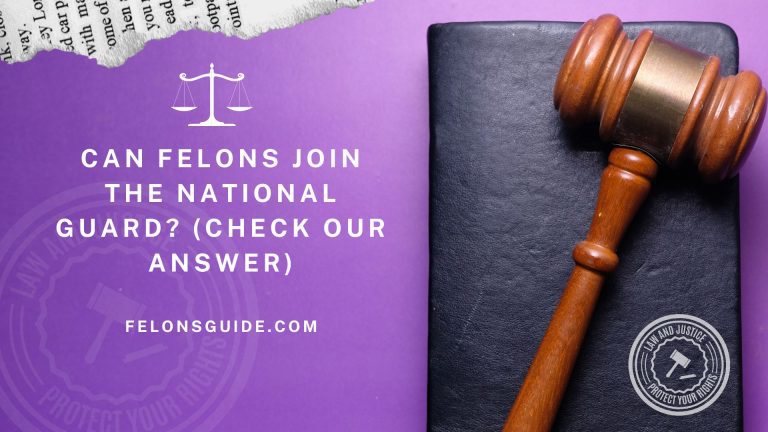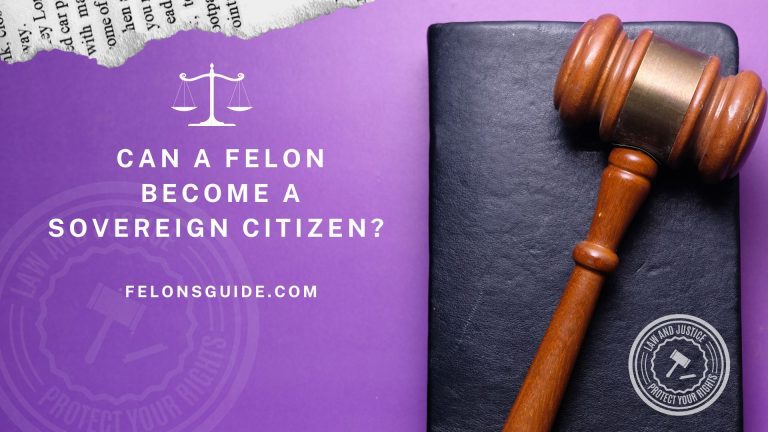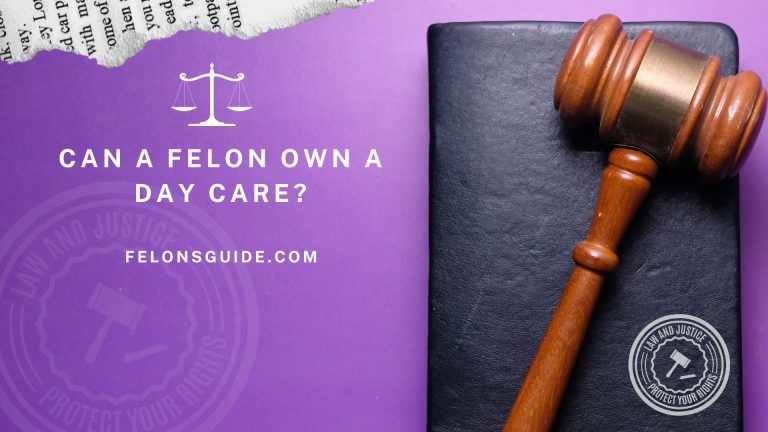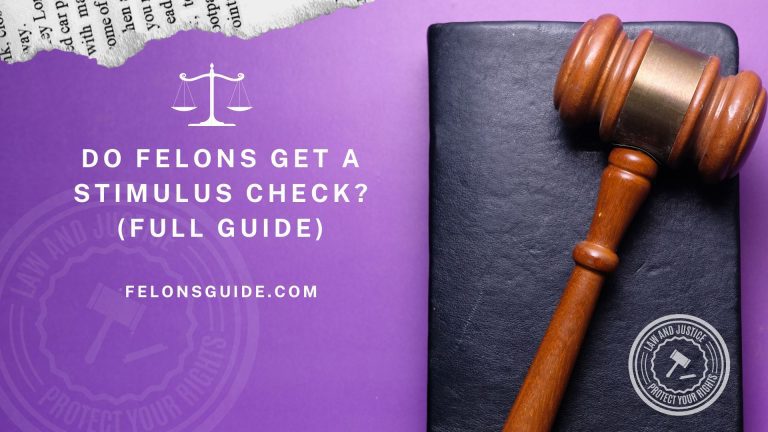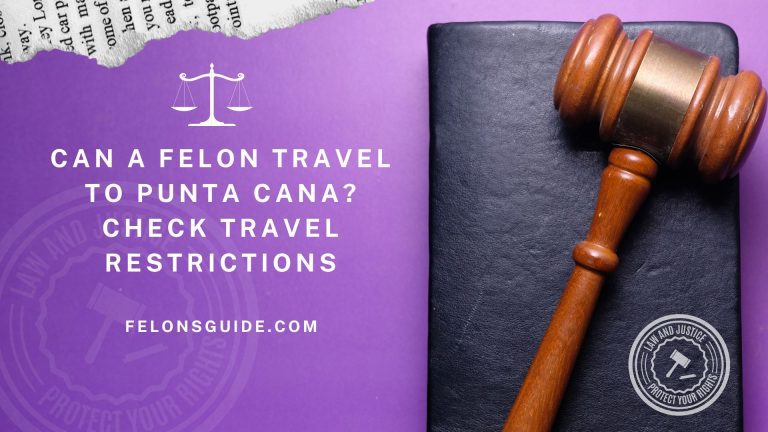Can a Felon get a CDL License: Exploring the Possibilities
Are you a convicted felon looking to get a Commerical driver’s License? The answer is not a simple yes or no. CDL requirements vary by state, and the guidelines for criminal background checks can be complex. However, it is possible for felons to obtain a CDL license with the right information and approach. In this article, we will explore the different factors that can hamper or improve your CDL license eligibility. Along with that, we will also provide tips for those who are interested in pursuing a career as a commercial driver. So, buckle up and get ready to learn about the ins and outs of CDL licensing for felons!
Understanding CDL Requirements
Becoming a commercial driver requires a rigorous process that involves several requirements. The Federal Motor Carrier Safety Administration (FMCSA) has established guidelines that must be followed to obtain a Commercial Driver’s License (CDL). These guidelines include a medical examination, a knowledge test, and a skills test. The knowledge test covers topics such as vehicle safety, driving regulations, and hazardous materials. The skills test assesses the driver’s ability to safely operate a commercial vehicle in different scenarios.
However, these requirements are just the tip of the iceberg. The FMCSA has established specific rules for drivers with certain endorsements, such as hazardous materials, passenger transport, or double/triple trailers. These rules can vary by state, and drivers may be required to pass additional tests or meet certain qualifications to obtain these endorsements.
For felons interested in obtaining a CDL, the criminal background check can pose additional challenges. Felony convictions can impact a person’s CDL license eligibility, as certain criminal offenses can disqualify them from operating commercial vehicles. This can include offenses such as driving under the influence (DUI), reckless driving, or drug-related offenses.
Additionally, the physical demands of the job should not be overlooked. Commercial driving can be a grueling profession that requires drivers to spend long hours on the road with limited rest periods. This can be physically and mentally taxing, and not everyone is cut out for the demands of the job.
Understanding the requirements and challenges of obtaining a CDL is crucial for anyone interested in pursuing a career as a commercial driver, especially for felons who may face additional hurdles due to their criminal background. In the following section, we will explore whether felons can obtain a CDL and what steps they can take to increase their chances of success.
Criminal Background Checks
So, you aspire to join the ranks of commercial truck drivers and obtain your CDL license, but your criminal record may be a hindrance. The question on your mind is whether you are even eligible to apply for the CDL license, and if your criminal history will affect the application process. The answer lies in the criminal background check, a pivotal aspect of CDL licensing that requires a closer look.
To begin with, not all criminal convictions result in disqualification from obtaining a CDL license. However, certain convictions such as those involving violence or drugs may disqualify you. The gravity and frequency of your convictions may also be taken into consideration.
The criminal background check for CDL licensing examines your entire criminal history, including misdemeanors and felonies. To avoid a denial of your application, it’s crucial to be honest about your criminal history when filling out your application.
It’s important to note that every state has its specific laws and regulations regarding CDL licensing and criminal backgrounds. Therefore, it’s crucial to research your state’s laws to determine your eligibility and any potential roadblocks you may encounter.
While a criminal record may make obtaining a CDL license more challenging, it’s not impossible. To enhance your chances of getting approved for the license, you may have to take additional steps such as completing a rehabilitation program to show your dedication to changing your life.
In conclusion, honesty about your criminal history and collaboration with your state’s licensing agency is crucial in determining your eligibility for a CDL license. With perseverance and determination, you can achieve your goal of becoming a commercial truck driver.
Also Read: Can Felons Purchase Ammunition: Understanding Laws & Regulations
State Laws and Regulations
Are you considering pursuing a CDL license but worried about your criminal history? It’s important to remember that each state may have its own specific laws and regulations regarding CDL licensing and criminal backgrounds.
For example, some states may have more lenient laws regarding certain types of convictions, while others may have stricter requirements. Additionally, some states may have additional steps that applicants with criminal histories must take, such as completing a rehabilitation program or obtaining a certificate of good conduct.
It’s important to research the laws and regulations in your state to determine your eligibility and any additional requirements you may need to fulfill. Your state’s licensing agency should be able to provide you with information on the specific rules and regulations in your state.
It’s also worth noting that even if you are eligible to apply for a CDL license in your state, you may still face challenges in finding employment. Some trucking companies may have their own policies regarding the hiring of individuals with criminal records, so it’s important to research potential employers and their hiring policies before applying for a job.
Ultimately, understanding the state laws and regulations regarding CDL licensing and criminal backgrounds is crucial for anyone with a criminal record who is considering a career in commercial truck driving. By doing your research and working with your state’s licensing agency, you can determine your eligibility and take any necessary steps to increase your chances of obtaining a CDL license and pursuing a successful career in the industry.
Also Read: Can a Felon Marry a Foreigner? Legal Requirements and Considerations Explained
Tips for Felons Interested in Obtaining a CDL License
So, you have a criminal record, but you’re determined to become a commercial truck driver and obtain your CDL license. While having a criminal record can present challenges, it’s not necessarily a roadblock to obtaining a CDL license. Here are some tips for felons interested in pursuing a career in commercial truck driving:
Be Honest About Your Criminal Record
As mentioned earlier, being honest about your criminal history is crucial when applying for a CDL license. Attempting to hide or lie about your criminal record can result in denial of your application and may even prevent you from obtaining a CDL license in the future.
Complete a Rehabilitation Program
Completing a rehabilitation program can demonstrate to potential employers and licensing agencies that you’re committed to turning your life around and making positive changes. This can increase your chances of being approved for a CDL license.
Obtain a Pardon or Expungement
Depending on the state you live in, obtaining a pardon or expungement of your criminal record may be possible. This can help to mitigate the impact of your criminal history and increase your chances of being approved for a CDL license.
Research State-Specific Regulations
Each state has its own regulations regarding CDL licensing and criminal backgrounds. It’s crucial to research the laws in your state to determine your eligibility and any additional steps you may need to take.
Consider Finding a CDL Training Program
Finding a CDL training program can provide you with the skills and knowledge necessary to become a commercial truck driver. Additionally, many CDL training programs may be able to provide guidance and assistance to felons interested in obtaining a CDL license.
